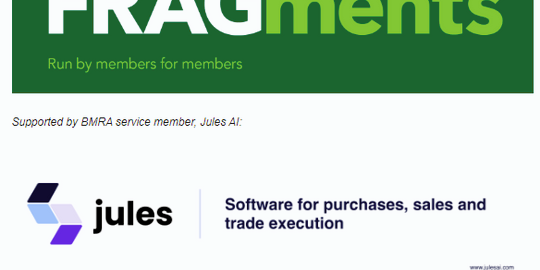Get comfortable and start talking about mental health

Today is Time to Talk Day.
Time to Talk Day is the nation’s biggest mental health conversation. It’s a day for friends, families, communities and workplaces to come together to talk, listen and change lives. Time to Talk Day is run by Mind and Rethink Mental Illness, in partnership with Co-op and delivered by See Me with SAMH (Scottish Action for Mental Health), Inspire and Time to Change Wales.
Learn more from its website:
Mental health - an employer's duty of care
According to the ACAS website, if a worker has poor mental health, it's important their employer takes it seriously and with the same care as a physical illness. Employers have a 'duty of care'. This means they must do all they reasonably can to support workers' health, safety and wellbeing. This includes:
- making sure the working environment is safe
- protecting staff from discrimination
- carrying out risk assessments
Read more about supporting an employee.
The signs of stress
According to the HSE website, signs of stress in an employee can include a change in the way someone acts, for example they may:
- take more time off
- arrive for work later
- be more twitchy or nervous
Or a change in the way someone thinks or feels, for example:
- mood swings
- being withdrawn
- loss of motivation, commitment and confidence
- increased emotional reactions – being more tearful, sensitive or aggressive
What an employer can do:
According to the ACAS website, to create a positive environment at work and help prevent work-related stress, employers should:
- have a clear policy on mental health and stress
- address the causes of stress through risk assessments and employee surveys
- encourage people to raise their concerns – for example, if a person feels they are being discriminated against
- provide training for managers – for example, on managing conflict, change and work-related stress
- support their employees – for example, listening to concerns and acting on them quickly
- promote a work-life balance – for example, encouraging employees to use their breaks and take holiday
- provide employees with access to support – for example, an employee assistance programme (EAP) or training on stress management techniques
From a health and safety perspective, it is also important to ensure that, if an employee is operating equipment or plant, for example, they are in the right place mentally to remain focused on the task.
BMRA's employment partner, Croner, offers member resources to assist employers, including a mental health policy template. Visit https://croner.co.uk/resources/ and search mental health.
It’s good to talk
Ensuring people have a way to share and/or vent their concerns, worries and feelings is a very important tool in tackling mental health issues.
With this in mind, companies should consider identifying a mental health champion who can lead on mental health issues in the workplace and to ensure they are appropriately addressed. Alternatively, employers can set up a mental health support group or a buddy system to encourage employees to share their concerns in a less formal way. All these options provide a point of contact for those who are having troubles to approach in the first instance.
At the same time, employers may want to consider asking employees to complete online mental health modules. These can be found at a range of places including Mind and ACAS. Many of these online portals offer certificates of completion to encourage people to complete the modules, which have been developed with everyone in mind.
Further information:




